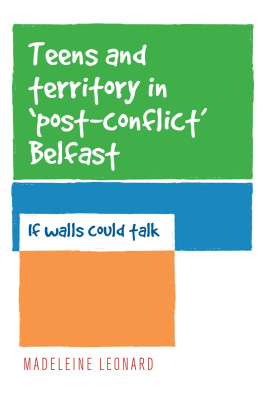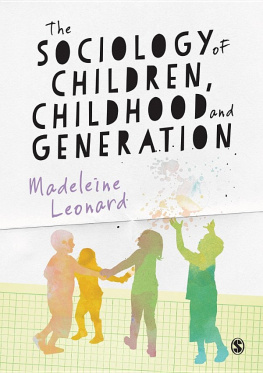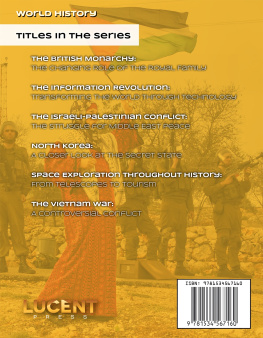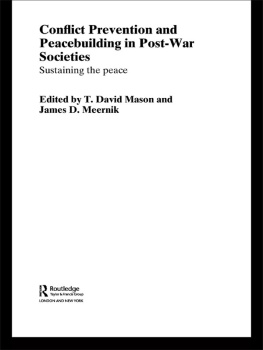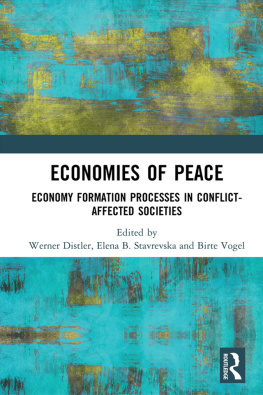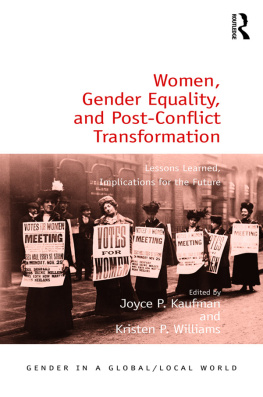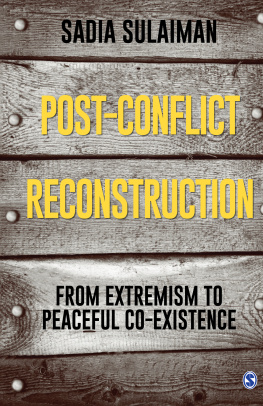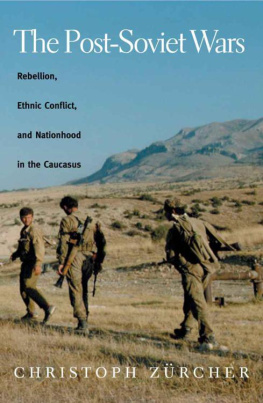Copyright Madeleine Leonard 2017
The rights of Madeleine Leonard to be identified as the authors of this work have been asserted by her in accordance with the Copyright, Designs and Patents Act 1988.
Published by Manchester University Press
Altrincham Street, Manchester M1 7JA
www.manchesteruniversitypress.co.uk
British Library Cataloguing-in-Publication Data
A catalogue record for this book is available from the British Library
ISBN 978 0 7190 9624 2 hardback
First published 2017
The publisher has no responsibility for the persistence or accuracy of URLs for any external or third-party internet websites referred to in this book, and does not guarantee that any content on such websites is, or will remain, accurate or appropriate.
Typeset by
Servis Filmsetting Ltd, Stockport, Cheshire
There is always a threat of returning to the past of violence, hatred and depression which still engulf the city. Belfast I believe will never escape its history which is known worldwide. There is still a threat when someone of a Catholic origin enters an area of Protestant majority. That person, I think even if they act confident, are afraid and uneasy because of the reputation of what can happen because of the past. This can happen in many different versions, whether it be Protestant or Catholic. (Catholic girl)
Northern Ireland is regarded as one of the most successful post conflict societies in the world. Nowhere is this more evident than in its capital city, Belfast. The city, once blighted by derelict, bombed-out buildings, now projects a new, outward-looking presence. New, flagship developments abound in the city centre, making it a more aesthetically pleasing place than it was during the period of the conflict. This investment, based on the promotion of economic liberalisation and consumption, aims to create the conditions for a durable and sustainable peace. It aims to promote a neutral, apolitical city based on a neo-liberal model of peace building and reconstruction (Richmond, : 524) points out, Belfast remains no ethnic melting pot. It might aspire to, and be in the process of becoming a city that is more liberal, pluralistic and cosmopolitan, but it still consists largely of two embittered dominant groups.
One has only to move a short distance from the city centre to see the continuing polarisation of the two main communities. Many Catholics and Protestants continue to live in adjacent, segregated communities, often characterised by poverty, unemployment and general deprivation, where the benefits of the peace process have been limited. The reimaging of Belfast as a post conflict city tends to gloss over these persistent divisions. These peoples voices are often absent from the discourses presenting Belfast as a pluralistic, cosmopolitan, modern and neutral city. Their perceptions and experiences of post conflict Belfast clash with the more popular dominant discourses and hence often receive little local, national or international coverage. The purpose of this book is to visit some of these neglected communities and articulate the voices, perceptions and experiences of the young people who live and grow up in them.
If walls could talk is a popular metaphor for illuminating the often hidden aspects of what happens within, when walls surround rooms and buildings, creating boundaries between the private and the public. Its usage here relates to walls that act as frontier markers between working-class Catholic and Protestant communities. Through the discourses of young people who inhabit these areas, the book illuminates what goes on within and between these walls. These young peoples voices need to be heard alongside the more favourable accounts of young people who live in communities that have benefited from the peace process. While both groups are part of the post conflict generation, how this plays out in daily practices and experiences needs to be articulated and understood before Belfast can truly claim its post conflict status.
Despite Northern Irelands new status as one of the most successful examples of the resolution of what was once seen as an intractable conflict, the peace walls which separate Protestant and Catholic areas remain in place, and are one of the most enduring and visible legacies of the conflict. However, despite their longevity, these walls are not recorded on any official maps. Sporadic rioting also continues to flare up, particularly around parades, demonstrating the fragility rather than the durability of the peace process. The involvement of young people in these riots is particularly perplexing, given that this group has grown up against a backdrop of paramilitary ceasefires, the signing of the Belfast/Good Friday Agreement and the establishment of a power-sharing political framework. The overall purpose of this book is to explore these contradictions by presenting young peoples perceptions and experiences of the physical and symbolic divisions that exist in post conflict Belfast and the ways in which they (re)produce, negotiate or challenge them in their everyday lives. The book examines the micro-geographies of young people and draws attention to the social practices, discourses and networks that directly or indirectly (re)shape how they make sense of and negotiate life in Belfast.
This involves recognition that space and place are intimately connected,).
Agnew challenges the notion of an increasingly placeless global world where ever-increasingly sophisticated technologies create virtual spaces and, in the process, render actual places irrelevant. This view is shared by Withers (place, takes this analysis a step further by emphasising how places are experienced and understood by their inhabitants. His overall conception of place provides a useful framework for bringing together location with the lived realities of people who occupy place.
Therefore, while places are made up of spaces, more importantly, they are constructed, deconstructed and reconstructed through social relationships and social practices. Spaces are little more than empty abstractions (Lefebvre, ). Paying attention to the place-rooted dimension of identity construction is a core underlying feature of this books framework. Addressing this neglect provides a necessary challenge to accounts which emphasise global aspects of identity while ignoring their place-rooted dimensions.

